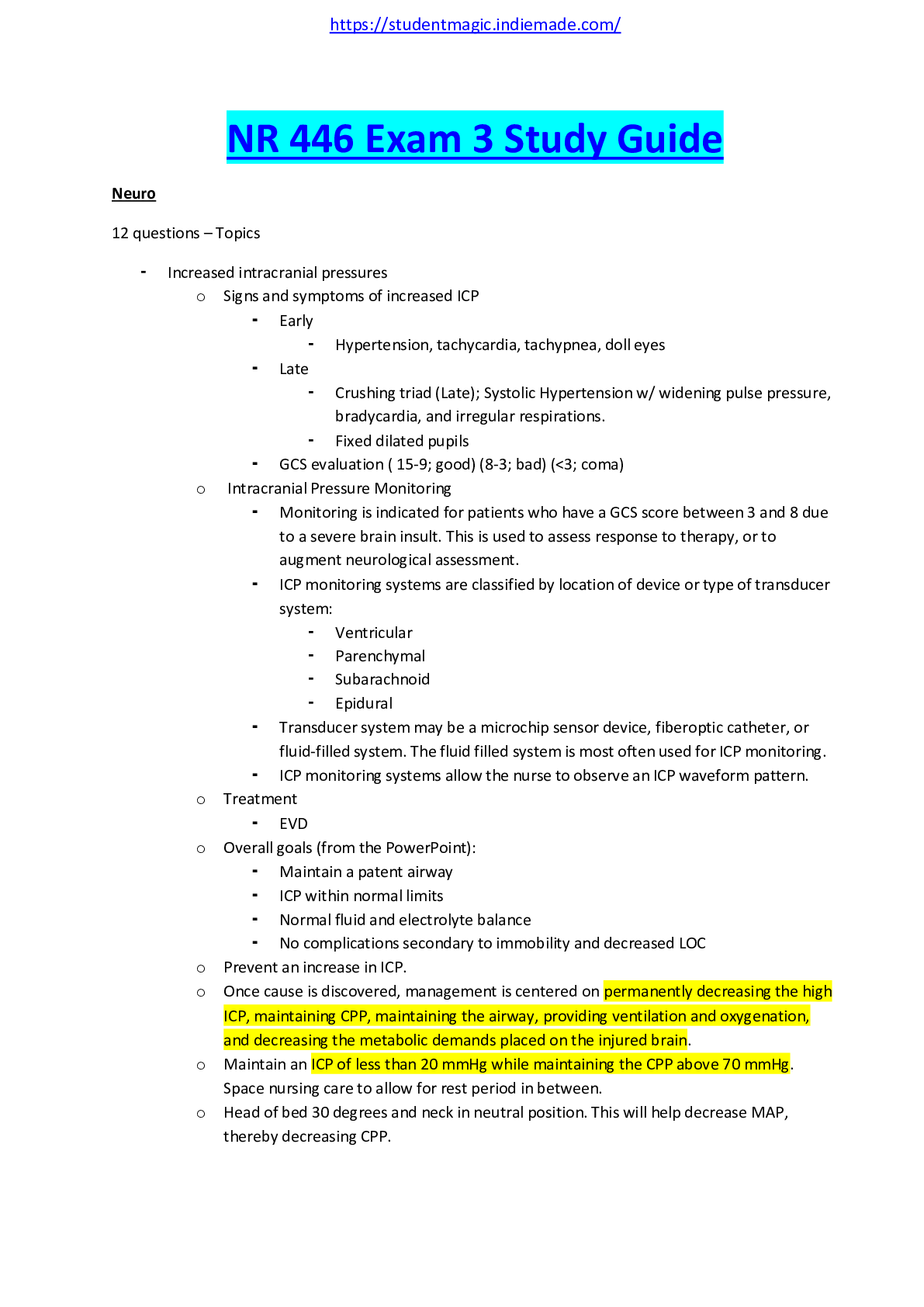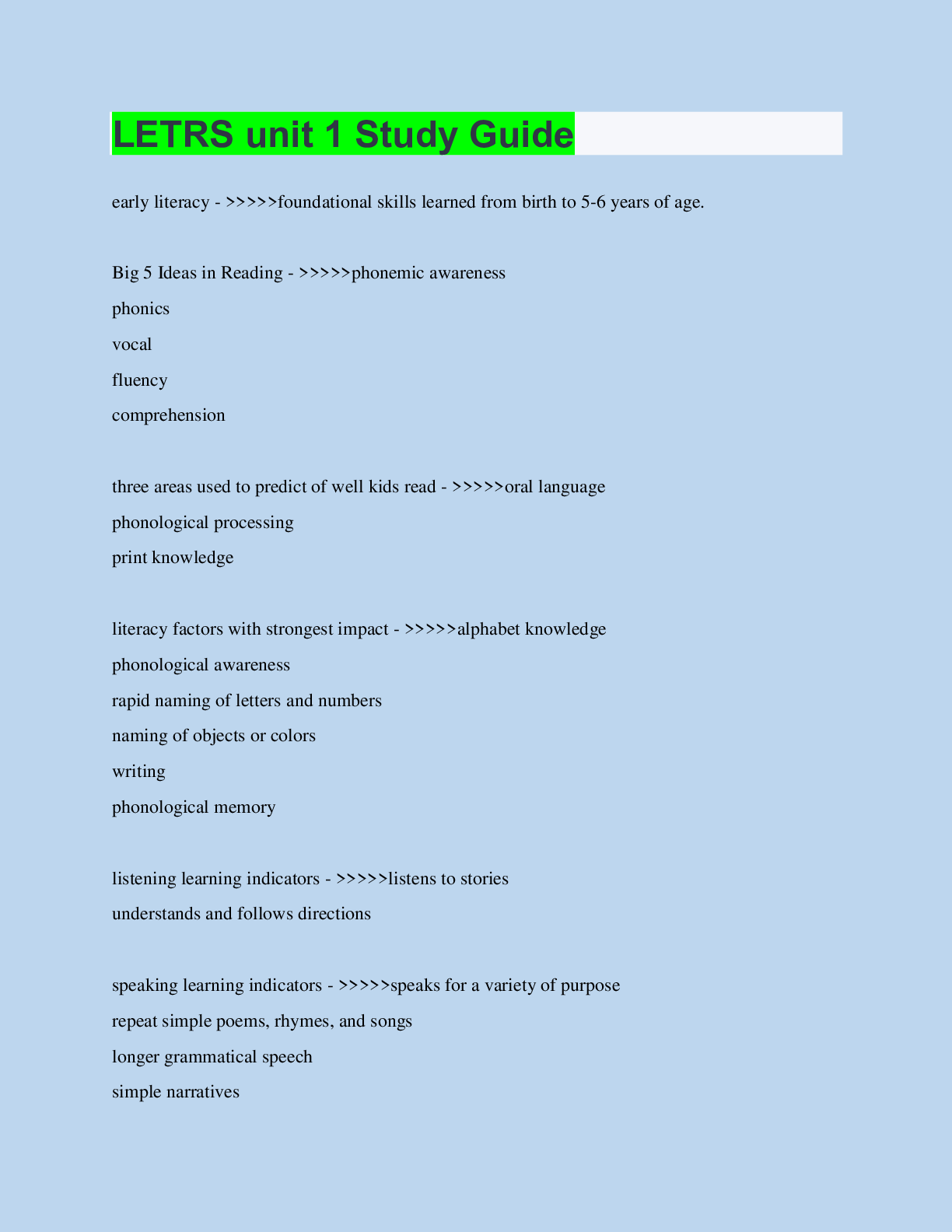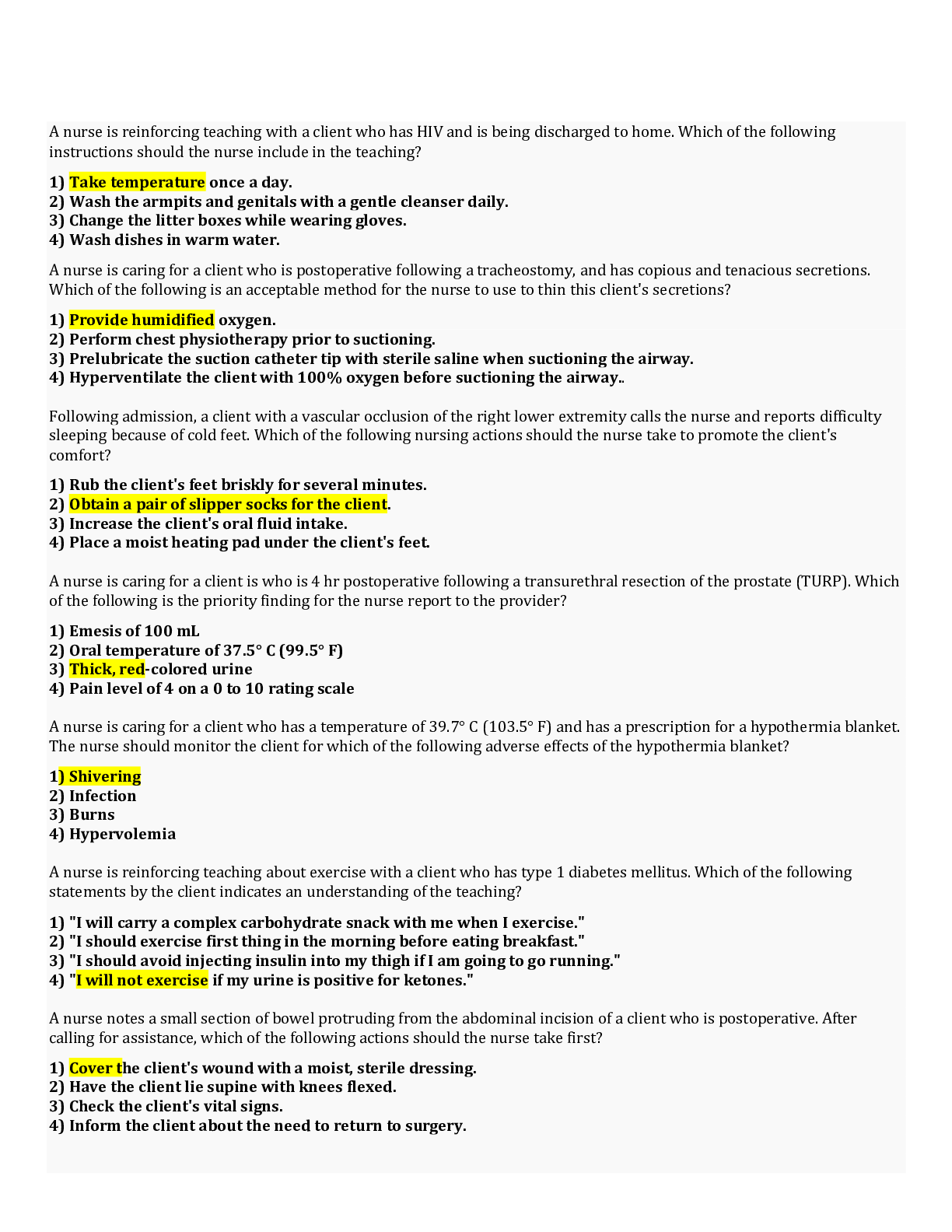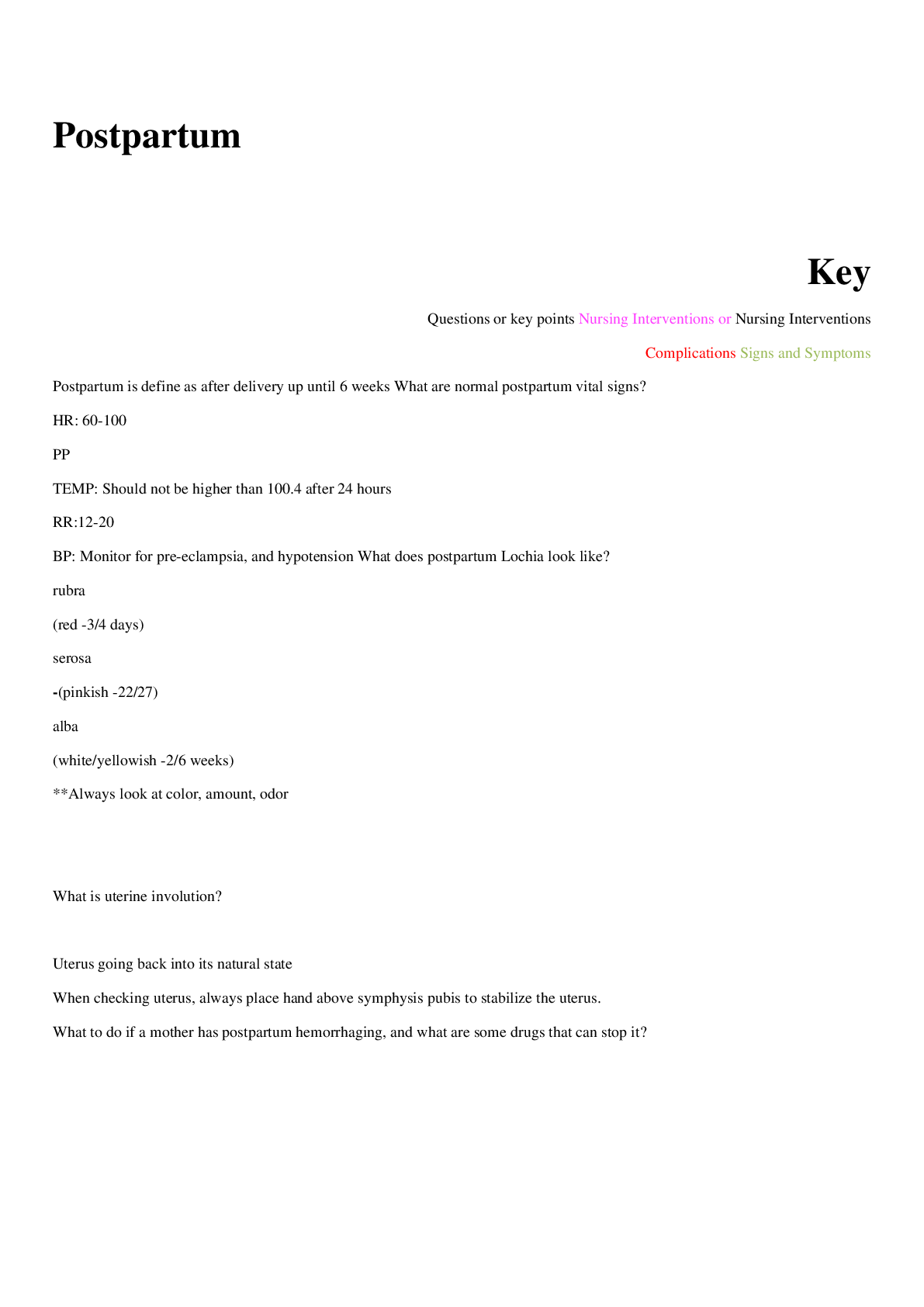Economics > STUDY GUIDE > Gonzaga UniversityECON 200AP EURO STUDY GUIDE unit 4 (All)
Gonzaga UniversityECON 200AP EURO STUDY GUIDE unit 4
Document Content and Description Below
AP EURO STUDY GUIDE UNIT 4 Migration Patterns – Due to the spread of industrialization and demand for workers, Western Europe saw a huge migration to cities. As a result, slums grew and living c... onditions worsened. Eastern Europe, by comparison, remained rural with little migration. Emancipation of Serfs – [order= Prussia>Austria>Russia] The emancipation of serfdom in Eastern Europe commercialized landholding and made migration easier. Most peasants became conservative landholders without enough land to support themselves. Irish Potato Famine – [1845-47] As many as half a million Irish peasants starved when disease blighted the potato crop. This led to the migration of hundreds of thousands of people. Railways – The 1830’s and 40’s opened the first great age of railway building, which appeared most significantly in Great Britain. Railways epitomized the character of the industrial economy, represented investment in capital goods rather than in consumer goods and increased the demand for iron, steel and a more skilled labor force. They also allowed for greater migration and a cheaper and more rapid passage of raw materials and finished products. Proletarianization – The entering of workers into a wage-labor force in which their labor became a commodity of the labor marketplace. As a result, workers lost ownership of the means of production [ie. tools, etc..] and the control over conducting trade. Chartism – The first large-scale European working-class political movement. It sought political reforms that would favor the interests of skilled British workers in the 1830’s and 40’s. As a national movement, however, it failed as its ranks were split between those who advocated violence and those who advocated peace. London Working Men’s Association – Founded by William Lovett and other chartists, this group issued the Six Points of the Charter [1. Universal male suffrage, 2. Annual election of the House of Commons, 3. The secret ballot, 4. Equal electoral districts, 5. Abolition of property qualifications for members of the House of Commons, 6. Payment of salaries to members of the House of Commons] Northern Star – The newspaper published by the chartists of the London Working Men’s Association. Factory System – Pre-1820, early English factories preserved traditional family roles, with the father as the chief worker and his family as his assistants. However, from the mid-1820s to the mid-1830s, a major shift occurred in the growing factories. New machinery demanded unskilled laborers that would accept lower wages. Skilled adult male laborers earned greater wages than ever before, allowing them to remove their families from the workplace and allow their kids an education. Often only young, single women and widows participated in the factories. Division of Labor – Due to the new factory system, men often supervised women and children that were not part of his family. Moreover, the passage of the English Factory Act of 1833 divided work and home life further. Now, families were separated for much of the day, establishing family life as exclusively tied to the home. In 1847, Parliament mandated a ten-hour workday for adults, allowing families to spend more time together.Child Labor – The English Factory Act of 1833 forbade the employment of children under the age of 9, limited the workday of children aged 9-13 to nine hours a day and required the factory owner to pay for two hours of education a day for these children. The effect was further to divide work and home life. Robert Peel – He sponsored legislation passed by the British Parliament that placed police on London streets. The members of the police force were nicknamed “bobbies” or “Peelers” after him. He also repealed the Corn Laws in 1846 in order to open British ports to foreign grain to feed the Irish during the Potato Famine, marking an opening of an era of free trade. Laissez-Faire – French phrase meaning “allow to do.” In economics, it meant the doctrine of minimal government interference in the working of the economy. Wealth of Nations – Written by Adam Smith in 1776, this novel inspired economists that dominated private and public discussions of industrial and commercial policy. Thomas Malthus – In 1798, he published his Essay on the Principle of Population that contended that population must eventually outstrip food supply. He believed that nothing could improve the conditions of the working class. David Ricardo – He echoed Malthus’ thoughts on population in his Principles of Political Economy [1817] in which he established “the iron law of wages” [If wages were raised, parents would have more children. The children would enter the labor market, expanding the number of workers and lowering wages. Due to this, workers would have less children and the process would repeat.]. He argued that due to the iron law, wages would always tend toward a minimum level. François Guizot – The minister of Louis Philippe that told the French to “go forth and enrich themselves. People who simply displayed sufficient energy need not be poor.” Louis Philippe – He was the king of France from 1830 to 1848 during the July Monarchy, which was fairly liberal. He was called “the King of the French” instead of “the King of France.” His new tricolor flag replaced the Bourbon all-white one. The king could not dispense laws without cooperation with the Chamber of Deputies. Money was the path to power and influence in the government, leading to corruption and there was little to no sympathy for the lower and working classes. He sought to capture Algeria as part of France. His rule saw the construction of major capital-intensive projects. His and his minister Guizot’s, suppressive policies led to the Revolution of 1848. After workingclass uprisings and barricades, Guizot resigned and Louis Philippe abdicated and fled to England in 1848. Jeremy Bentham – Associated with utilitarianism, he sought to create codes of scientific law that were founded on the principle of utility, that is, the greatest happiness for the greatest number. He wrote Fragment on Government [1776] and The Principles of Morals and Legislation [1789]. In 1834, the House of Commons passed a Poor Law supported by Bentham, establishing a Poor Law Commission that set out to make poverty the most undesirable of all social situations. Count de Saint-Simon – The earliest of the socialist pioneers, he was the ideological father of technoc [Show More]
Last updated: 1 year ago
Preview 1 out of 19 pages
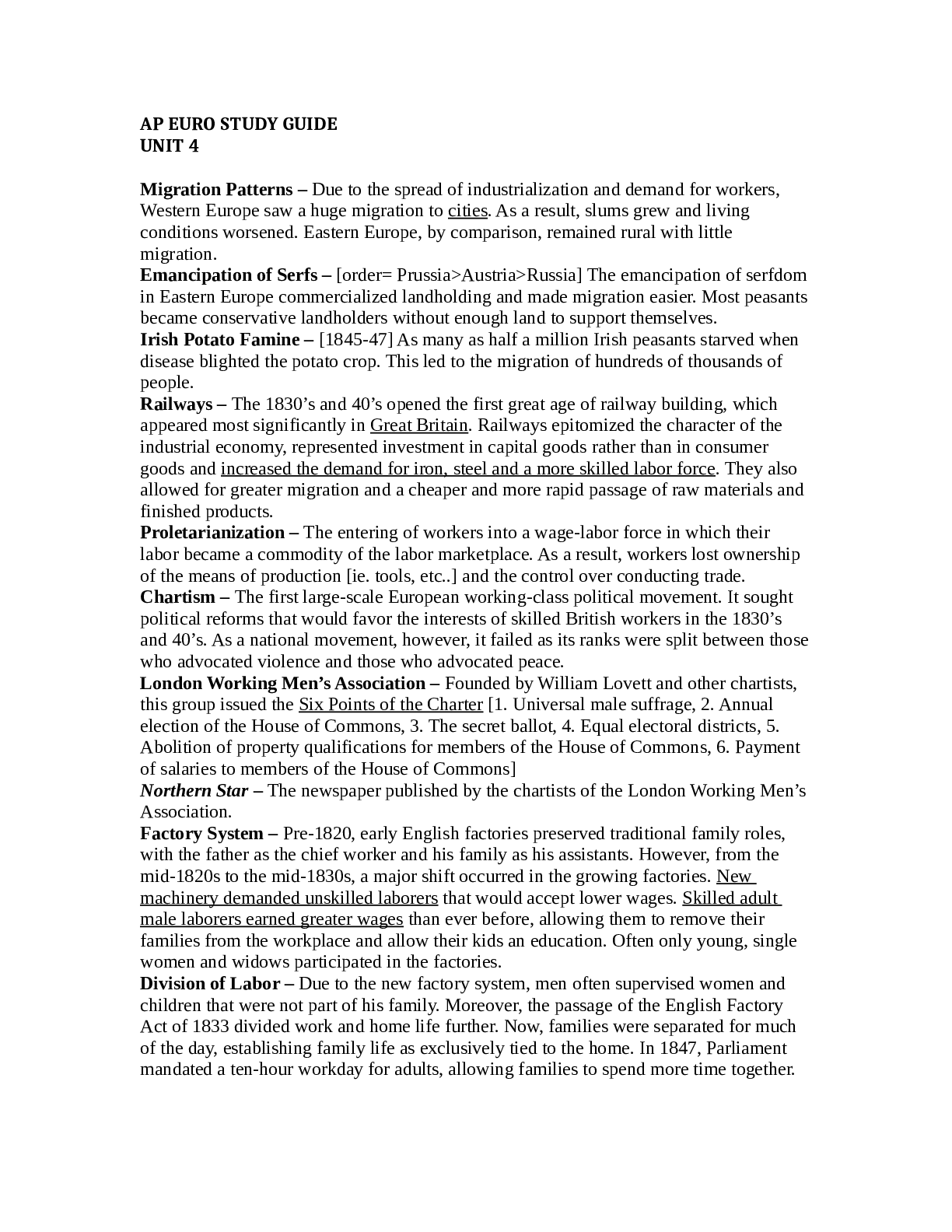
Reviews( 0 )
Document information
Connected school, study & course
About the document
Uploaded On
May 30, 2021
Number of pages
19
Written in
Additional information
This document has been written for:
Uploaded
May 30, 2021
Downloads
0
Views
46

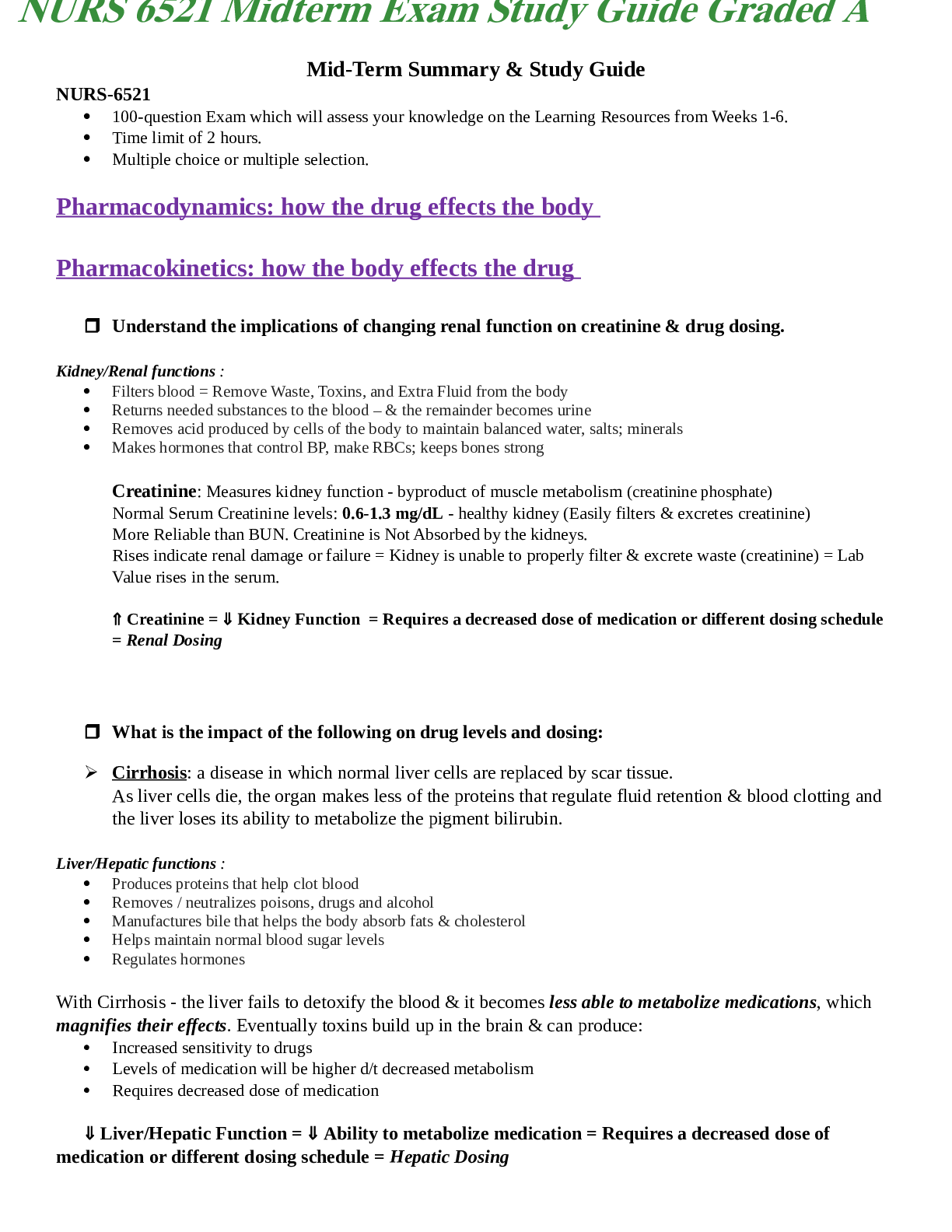
.png)
.png)





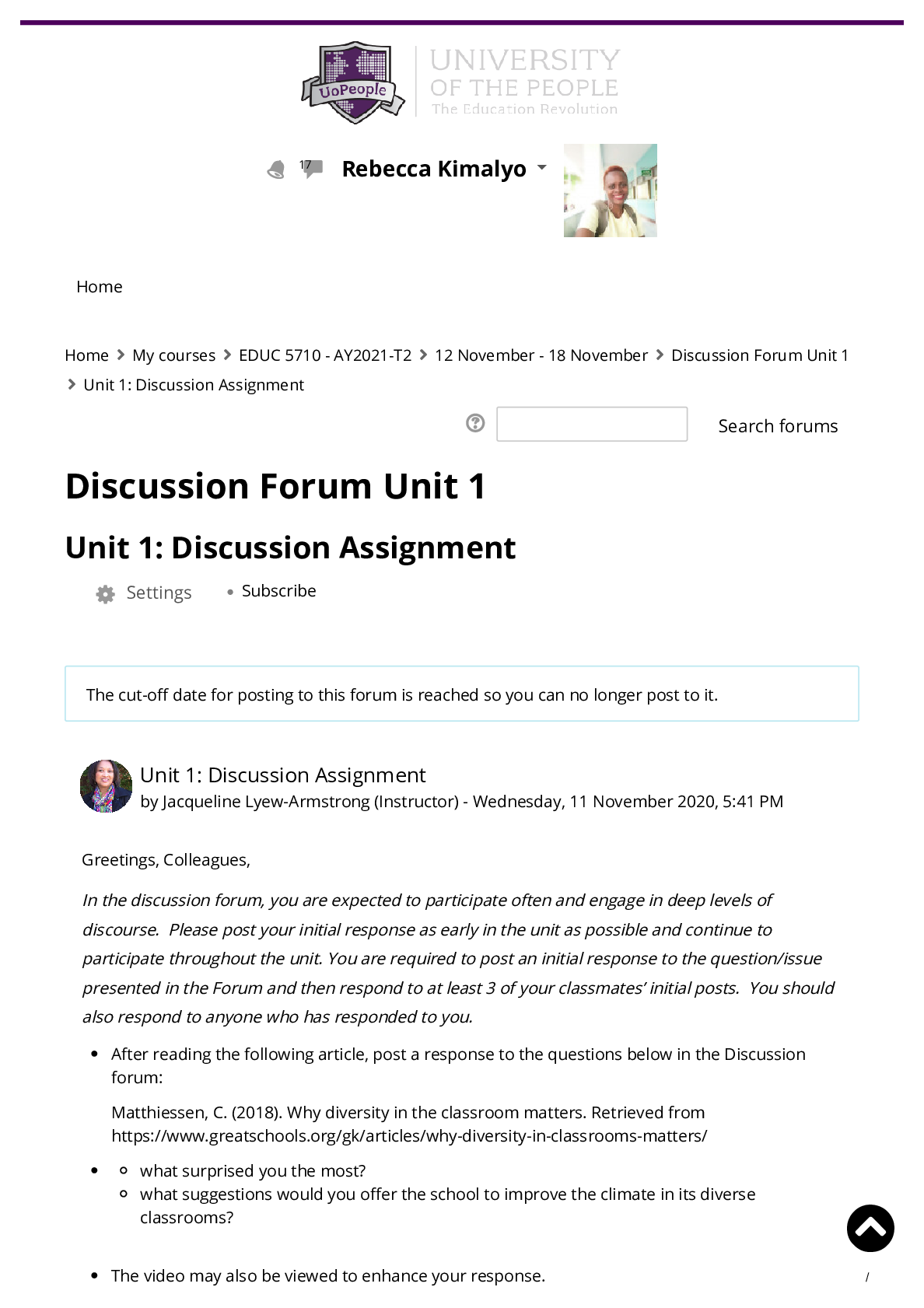


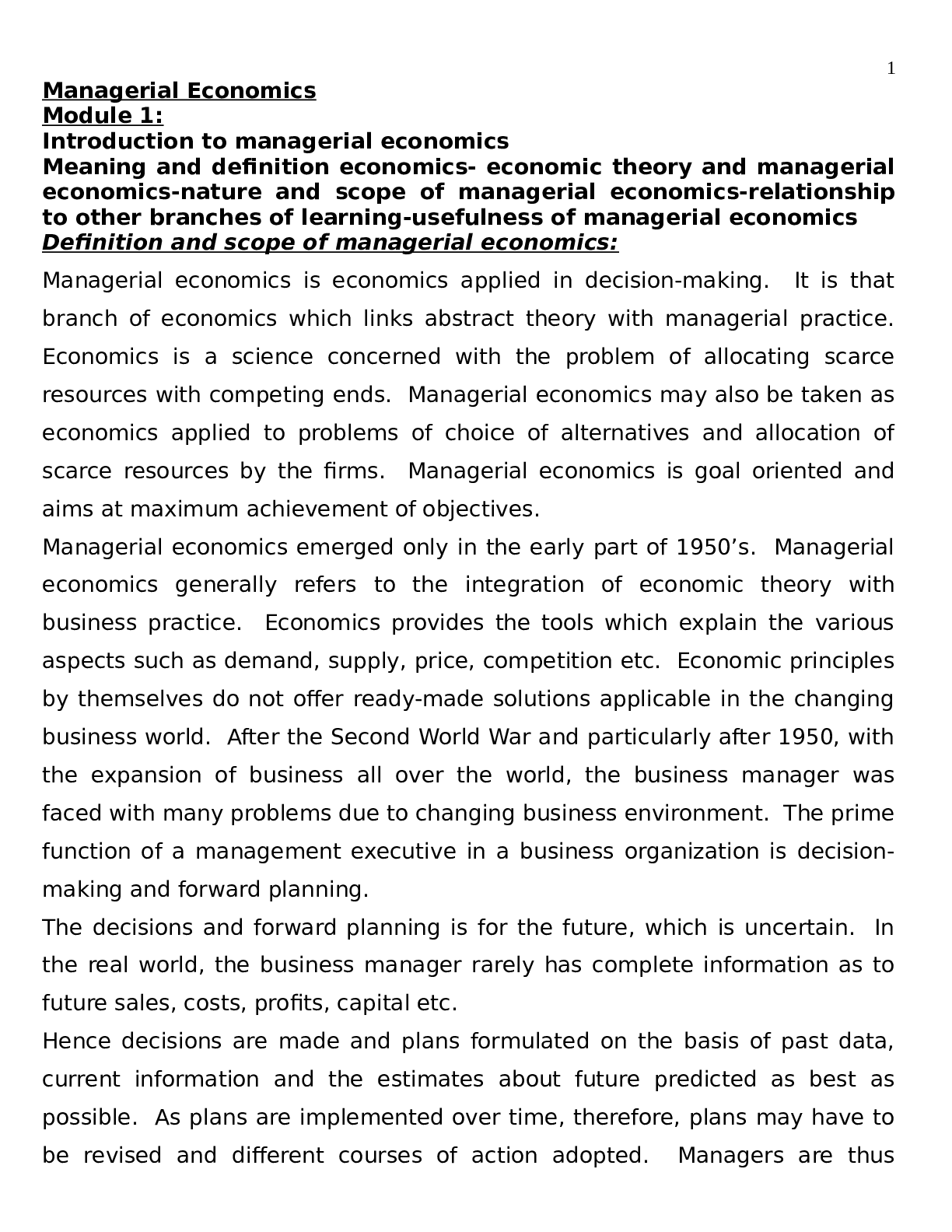


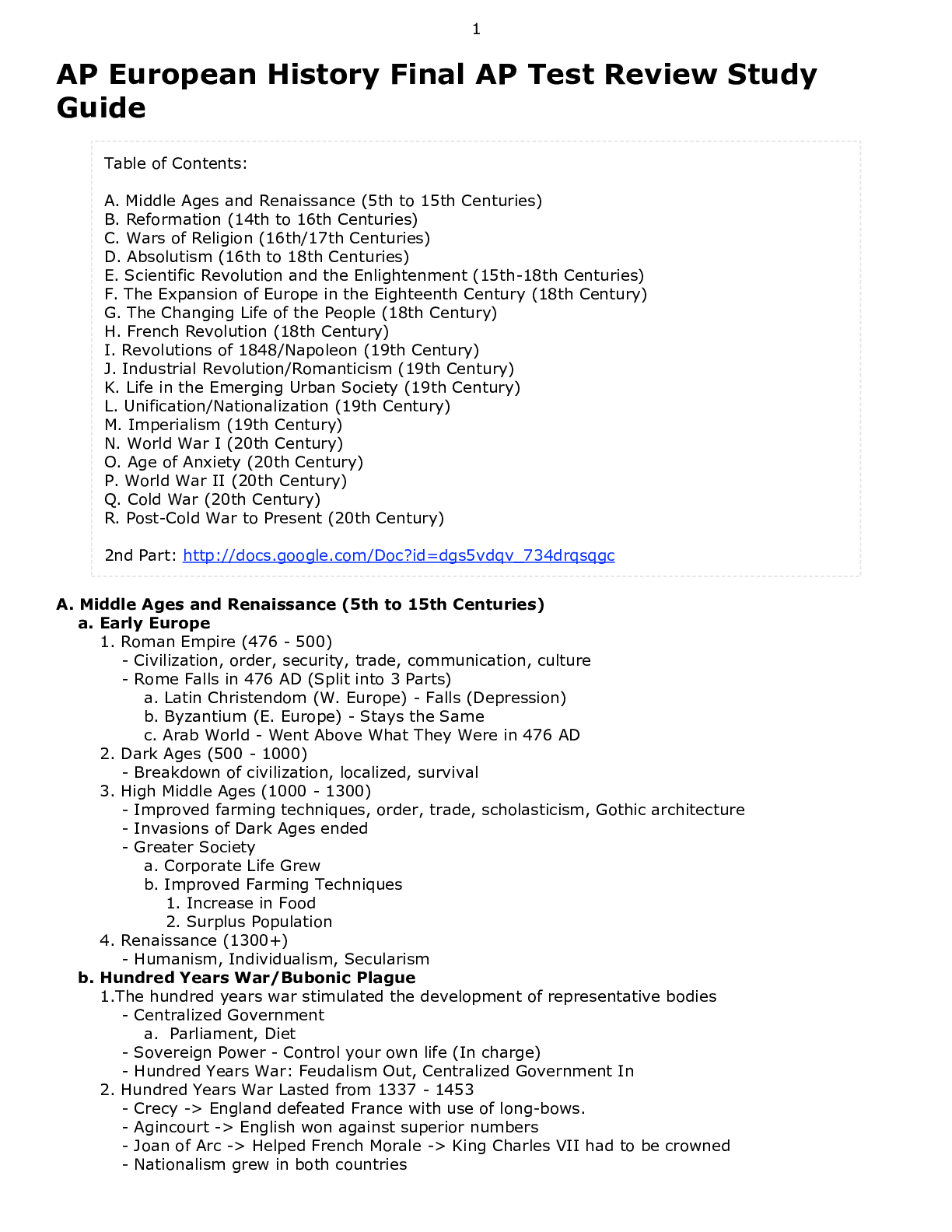

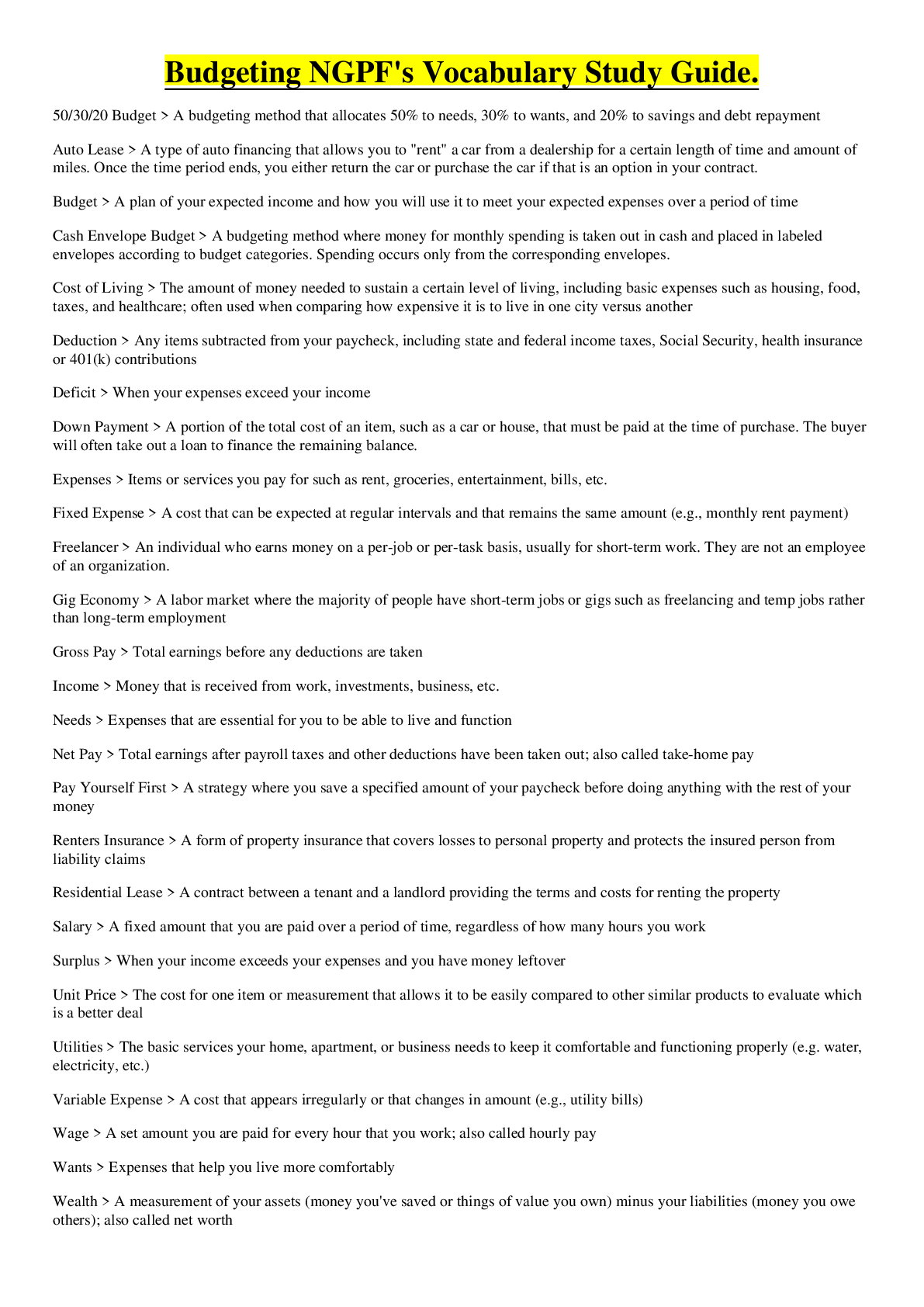

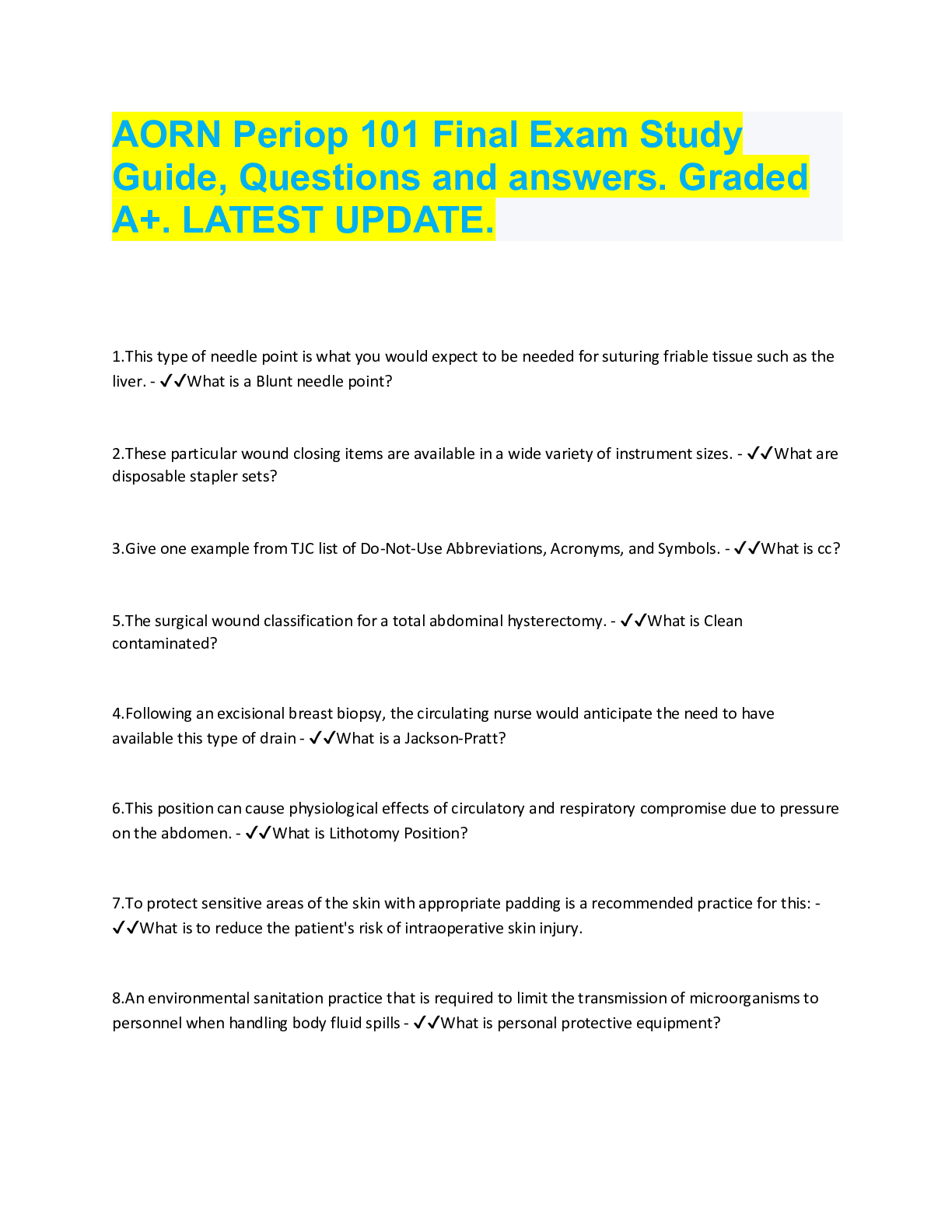
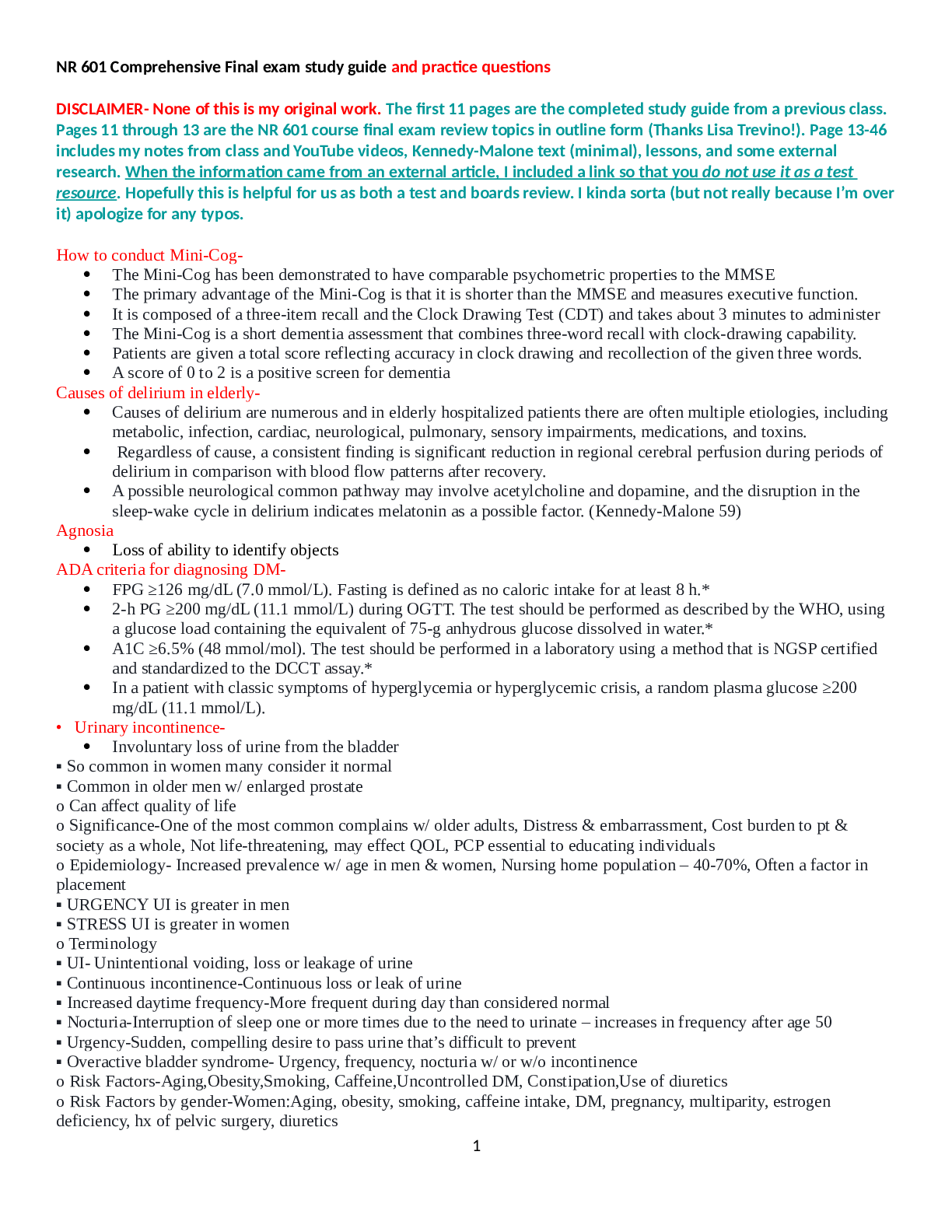



.png)



